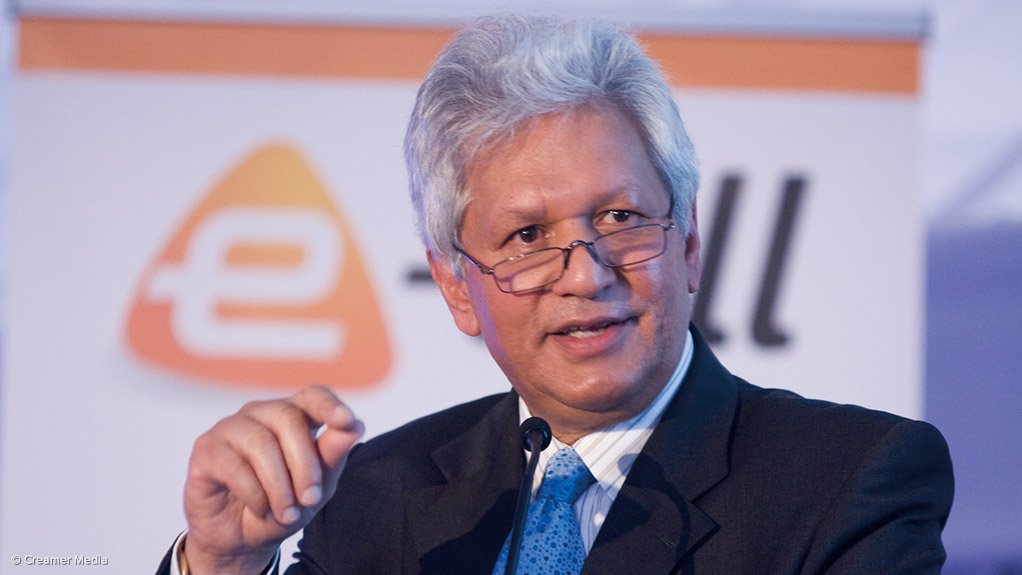There were a number of “inconvenient truths” often ignored in the debate around tolling the 201 km of Gauteng highways upgraded during the Gauteng Freeway Improvement Project (GFIP), said South African National Roads Agency Limited (Sanral) CEO Nazir Alli on Tuesday.
Speaking at the Intelligent Transport Society South Africa’s i-Transport conference, in Midrand, he said the fuel levy – often touted as the preferred method of payment for the infrastructure upgrades – would need to increase by R3.60 a litre in 2014 money terms, plus inflation, over ten years to accommodate the demands of South Africa’s road network.
“Of course there was a huge outcry saying it is only 15c a litre. Yes, it will be 15c a litre if we think about 201 km of roads, but as government we cannot only think of 201 km of roads. We have 750 000 km we have to look after,” said Alli.
He added that the fuel levy was a diminishing income source, with electric vehicles, using no fuel, poised to become mainstream over the next few years.
“But electric vehicles still need roads.”
Alli noted that a national, general fuel levy was also an inequitable method of securing funding for Gauteng’s toll road network, as “people who will never use it, will pay for it. But this is an inconvenient truth we do not want to accept”.
He added that governments globally had only one real source of income – tax, with borrowings not classified as income. He said this income had to meet many infrastructure demands in South Africa, which was an impossible task.
He noted several projects, such as housing and social grants, that could be dropped in favour of “free roads”.
He acknowledged that South Africa had to increase its tax base. He also acknowledged that communication around the toll project could have been better.
“We will have to up the ante on our communication.”
Alli also emphasised that the effect of nonpayment on Gauteng’s toll roads would have a spill-over effect on, for example, the financial ratings of the country and other government institutions, and ultimately, also the working environment of the private sector.
“Everything is interconnected, but again this is an inconvenient truth.”
Without Phase 2 of the GFIP, in the pipeline, a project such as the Ekurhuleni Aerotropolis would “choke before it even started”, for example.
Alli also lamented the “deadly silence” of those who should be supporting the implementation of toll roads, such as professionals whose jobs depended on technologies such as electronic toll collection systems.
The media had to be “a bit fairer” when reporting on the debate surrounding Gauteng’s toll roads, he added.
He said a widely publicised Ipsos survey found that 34% of respondents believed the tariffs were reasonable, compared with 38% who said the tariffs were unreasonable.
“There is a 4% difference, which I believe in the emotionally charged atmosphere we have been working in, is splitting hairs. But what has the narrative been? Because this is an inconvenient truth again, the narrative has been about those people who disagree.
“Why do we never want to discuss these things in a fair and reasonable manner?
“In the debate right now, the culture of nonpayment is what we are promoting, and the high tolerance for white collar crime.
“All we hear are the voices of those who say no, all the time,” said Alli.
EMAIL THIS ARTICLE SAVE THIS ARTICLE
To subscribe email subscriptions@creamermedia.co.za or click here
To advertise email advertising@creamermedia.co.za or click here











